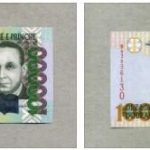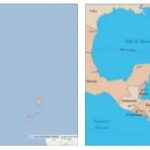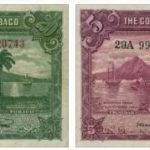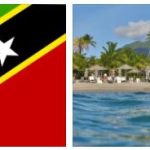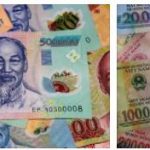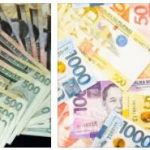Health care
Vaccinations
| Vaccination needed | receipt required | |
| yellow fever | Yes, 1 | |
| Typhoid & Polio | Yes | – |
| cholera | 2 | |
| malaria | 3 | – |
| Eat Drink | 4 | – |
Overview
As one of the poorest developing countries, Angola has numerous health risks and an inadequate medical infrastructure. The medical care does not correspond to Western standards. However, there are some better equipped clinics in Luanda where routine treatments are possible, albeit at high prices. A first-aid kit should be carried with you, as medicines are often not available. It is absolutely necessary to take out travel health insurance with repatriation insurance. Note: In addition to the mandatory yellow fever vaccination, vaccination against hepatitis A and B is also required when applying for a visa. Check indexdotcom for more information.
Notes vaccinations
[1]: A vaccination certificate against yellow fever is required from the age of 8 months for all travelers. The yellow fever vaccination certificate is only valid for 10 days after the vaccination. Angola is considered a country with yellow fever infection areas. Therefore, regardless of country regulations, WHO strongly recommends vaccination for all travelers to yellow fever infected areas. [2]: A vaccination certificate against cholera is not an entry requirement, but there is a risk of infection, especially in the provinces of Bengo, Benguela, Cabinda, Huambo, Huila, Kuando-Kubango, Kunene, Kwanza-Norte, Kwanza-Sul, Luanda (Luanda Cap.), Malanga, Namibe, Uige and Zaire. to protect yourself should practice careful drinking water and food hygiene. Vaccination is only recommended in rare cases. Contrary to official regulations, a cholera vaccination may occasionally be required, especially when arriving from a country with cholera or when entering outside of international airports. [3]: Malaria protection required nationwide due to high risk all year round, including in urban areas. Resistance to chloroquine and sulfadoxine/pyrimethamine in the more prevalent form Plasmodium falciparum has been reported. Therefore, an individual consultation with a doctor before departure is highly recommended. [4]: Vaccination against hepatitis A and B is required for the visa application. Nationwide there is an increased risk of infection for various infectious diseases (e.g. hepatitis A, typhus, bacterial dysentery, amoebic dysentery, lambliasis, worm infections) transmitted through contaminated food or drink. Therefore, careful food and drinking water hygiene measures should always be implemented. Water should generally either be boiled or otherwise sterilized before it is used for drinking, brushing teeth and making ice cubes, or it should be bought packaged. When buying packaged water, you should make sure that the original packaging has not been opened. Outside of urban areas, milk is unpasteurized and should be boiled. Avoid local dairy products made from raw milk outside of the cities. Meat and fish dishes should only be well cooked and served hot. Pork, raw salads and mayonnaise should be avoided. Vegetables should be boiled and fruits should be peeled. Warnings are given against eating and buying food from cheap street restaurants and markets.
Other risks
Schistosomiasis pathogens are found in some ponds and rivers, so swimming and wading in inland waterways should be avoided. Well maintained swimming pools with chlorinated water are safe. Dengue fever, transmitted by mosquitoes, occurs. An effective insect repellent is recommended. Filariasis caused by insects occurs in the north. Travelers reduce the risk of transmission if they use an effective insect repellent. Nationwide there is an increased risk of infection with hepatitis A. Hepatitis E is widespread, hepatitis B is highly endemic. Hepatitis A and B vaccinations are required to apply for a tourist visa. HIV/AIDS is widespread and a great danger for everyone risk of infection: Unprotected sexual contact, unclean syringes or cannulas and blood transfusions can pose a significant health risk. Immune protection against measles (previous illness or vaccination) should be in place when traveling to Angola. Epidemic outbreaks of meningococcal meningitis occur nationwide between May and October. Cases of sleeping sickness are reported all year round from the northern regions (particularly Uije Province, Kunene, Huambo, Namibe and Huila). Good protective measures against biting flies should always be carried out. rabies occurs. Increased risk nationwide, mainly from dogs, but also from cats, bats and other animals. Vaccination is recommended for backpackers, children, occupational risk groups and for longer stays. In the event of a bite, seek medical attention as soon as possible. Tick bite fever is endemic and occurs nationwide.
Money
Currency
1 New Kwanza = 100 centimos. Currency code: Kz, AOA (ISO code). Banknotes are in denominations of 5000, 1000, 500, 200, 100 and 50 Kw; Coins exist in denominations of 50 centimos, 20, 10, 5 and 1 Kw.
Credit cards
Major credit cards are only accepted in some major hotels and restaurants.
ATMs
Bank cards With the credit card and pin number, money can be withdrawn from ATMs. The Girocard (formerly ec card) with the Cirrus, Plus or Maestro symbol is accepted worldwide. It can be used at ATMs with the Cirrus, Plus or Maestro symbol in major cities, in Luanda at the airport and in larger hotels. However, the ATMs are occasionally empty. To be on the safe side, travelers should always have an alternative source of money such as cash. Further information from banks and credit institutes. Attention: Travelers who want to pay with their bank customer card abroad and withdraw money should find out from their bank about the possibility of using their card before starting their journey.
Travelers cheques
Travelers checks are not accepted in Angola.
Bank opening hours
Mon-Fri 08.45-16.00.
Foreign exchange regulations
Foreign currencies must be declared when importing and exporting from a value of US$ 5,000 (minors: US$ 1,500). Export only in the amount of the declared import minus the exchange amounts (proof). The approval of the National Bank is required for the export of larger amounts. The import and export of local currency is only permitted up to a value of 50,000 kwanza.
Currency Exchange
Money should only be exchanged in official exchange offices. Exchanging money on the black market is illegal. You should only swap as needed. US dollars are also accepted ($100 bills only from 1996 printing date).
Currencies
| Code | Symbol | Exchange rates (no guarantee) |
| AOA | 1 EUR = 172.59 1 CHF = 205.56 1 USD = 165.91 |


